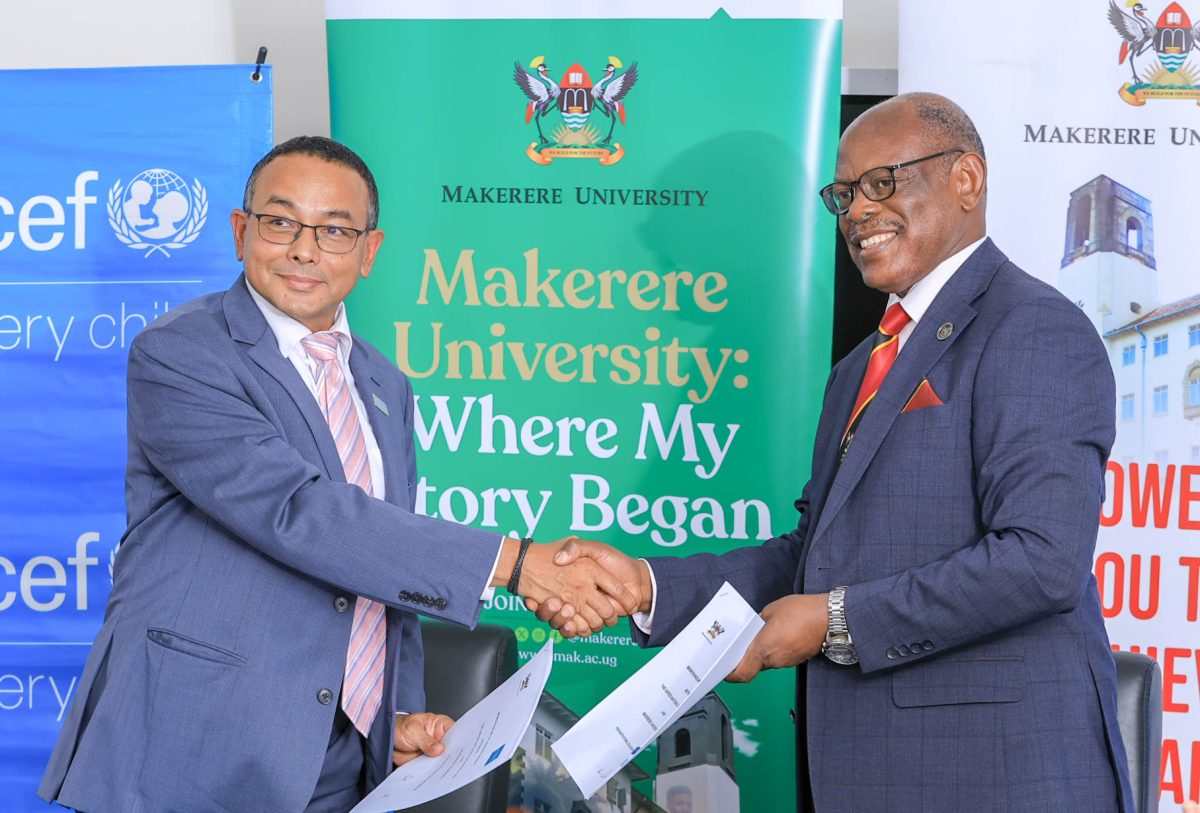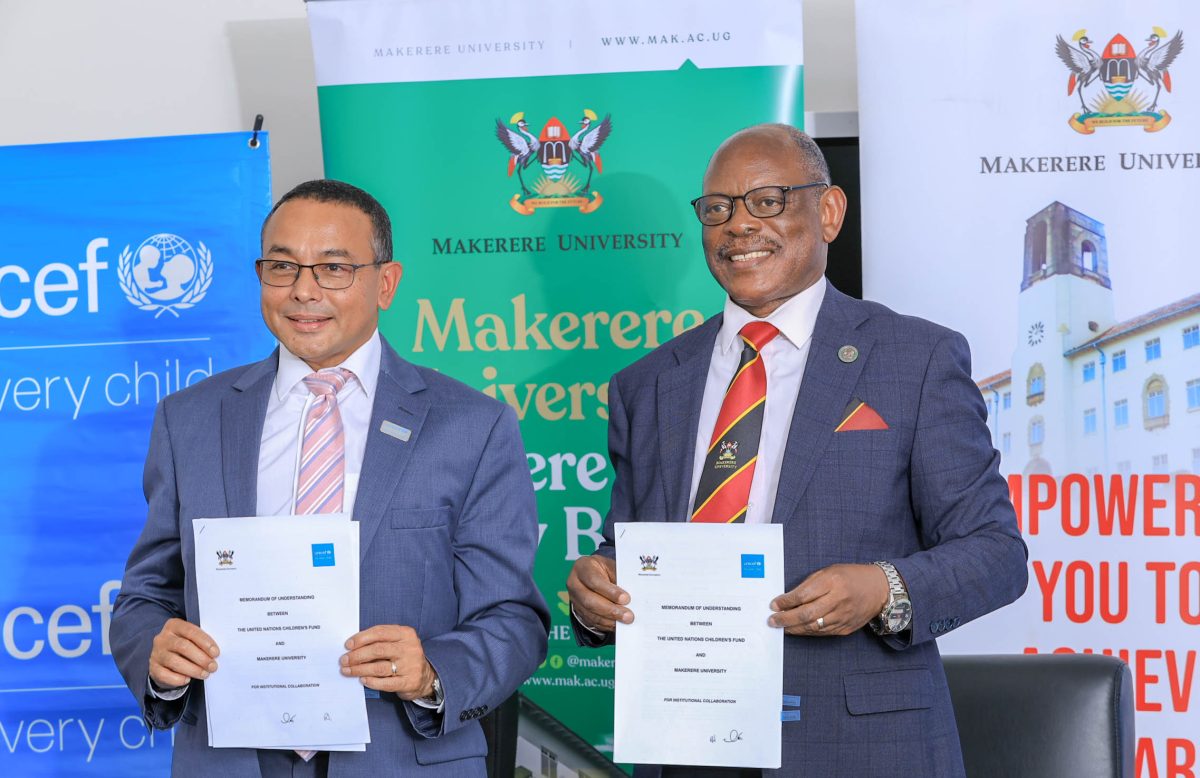Makerere University (Mak) and United Nations Children’s Fund (UNICEF) Uganda have signed a Memorandum of Understanding that launches a two-year, renewable partnership aimed at advancing child rights and well-being through rigorous research, capacity building, and policy-driven innovation.
The agreement was signed on Thursday, 14 August 2025, by Makerere Vice Chancellor Professor Barnabas Nawangwe and UNICEF Uganda Representative Dr. Robin Nandy in the Vice Chancellor’s Boardroom at Makerere’s Main Building.
The MoU enlists a focused collaboration on generating child-focused data and research to inform policy and program design, analyzing how health, nutrition, education, and protection initiatives affect children, and strengthening the social sector workforce through targeted training, curricula, and performance standards.
It also emphasizes knowledge management, wide dissemination of findings to stakeholders, policy and legislative advocacy for child rights, and active student engagement through internships, skilling opportunities, and communities of practice. The renewed partnership is designed to bolster evidence-based policy-making and drive program improvements that contribute to Uganda’s progress toward the Sustainable Development Goals by 2030.

“The signing of this MoU deepens Makerere’s long-standing commitment to the well-being of Uganda’s children and Africa’s future,” said Vice Chancellor Nawangwe. “I thank Dr. Nandy for his leadership and for the continued collaboration that will expand our capacity to deliver research with immediate, practical benefits for communities.”
UNICEF’s Dr. Nandy stressed that the partnership reflects UNICEF’s global mission to protect and promote every child’s rights while translating research into policy and action. He highlighted Makerere’s proven strength in research leadership as a critical asset in the effort to generate robust evidence for government decision-making and resource allocation.
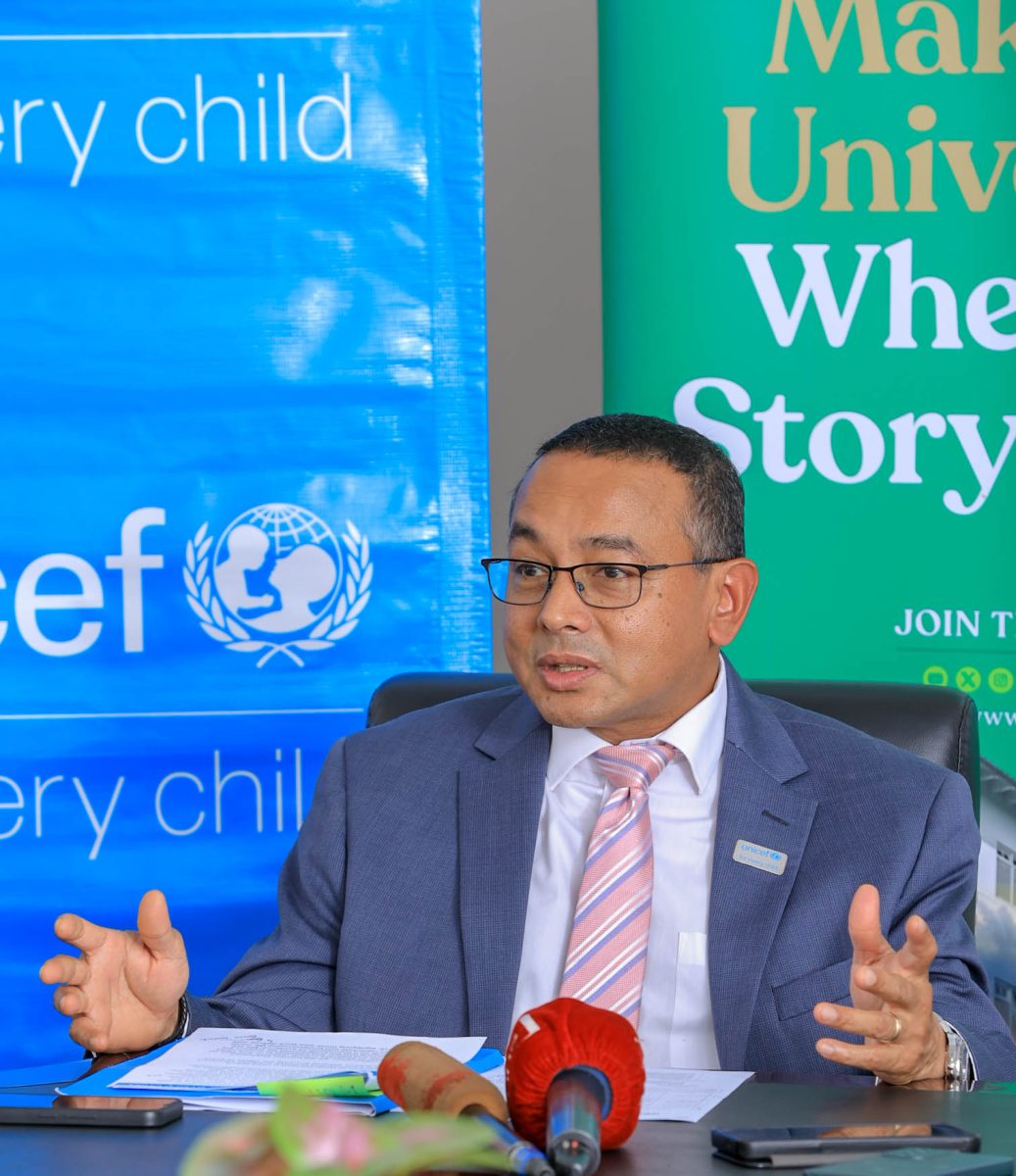
“This partnership shows our commitment to combine academic knowledge with practical results,” said Dr. Nandy. “Using Makerere’s research skills to create important information about child welfare issues and solutions, making sure that every project we start is based on solid data and aims to safeguard and support children’s basic rights.”
The partnership builds on Makerere University’s established research strengths and UNICEF’s global mandate to protect children. It complements longstanding collaborative work through Mak’s School of Public Health (MakSPH) and other faculties, reinforcing a broader university-wide commitment to evidence-based policy and community impact.
Since 2016, Makerere has participated in more than 30 UNICEF-supported research projects, which emphasize a deep mutual trust and shared mission. The Vice Chancellor noted that this history laid a robust foundation for the new MoU while also underlining opportunities to broaden collaboration beyond the health sector.
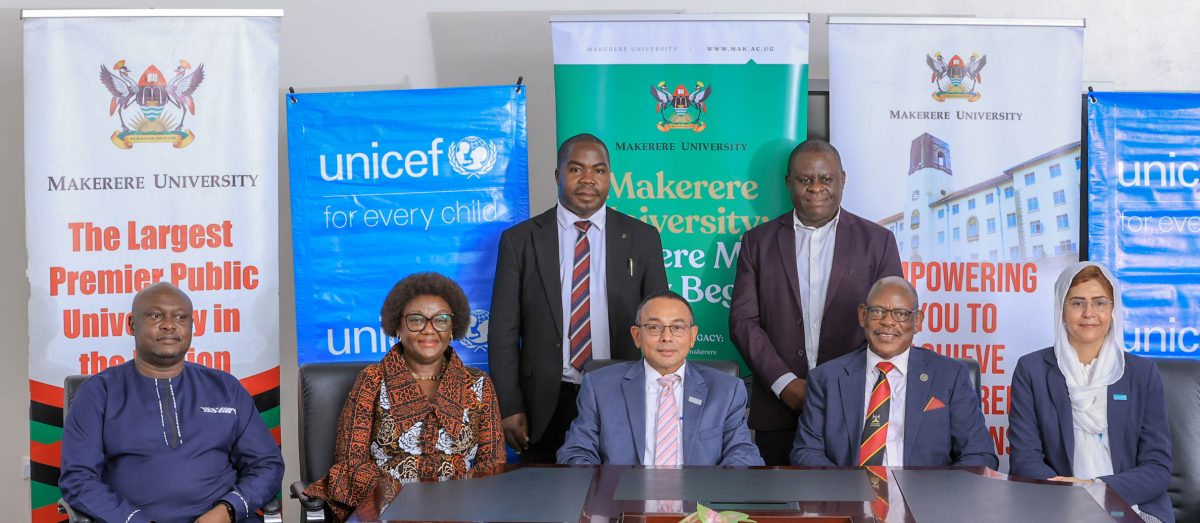
Among the notable prior initiatives is MakSPH’s joint work with UBOS and UNICEF, supported by EU funding, on the first comprehensive Food Security and Nutrition Assessment in ten districts of Northern Uganda and the West Nile region (2019). The findings of this work informed targeted nutrition programs and strategies to combat malnutrition among vulnerable populations, shaping policy directions at local and national levels.
In 2023, MakSPH, in collaboration with the National Planning Authority (NPA) and UNICEF, along with FHI360 and the Ministry of Health, produced an updated Situation Analysis of Newborn Health in Uganda. The document has guided the ministry’s national strategy development, including costed investments to improve newborn health across the country.
Professor Rhoda Wanyenze, Dean of MakSPH, hailed the partnership as a continuation of a long-standing relationship, noting that UNICEF’s support was instrumental in establishing the Makerere University Centre of Excellence for Maternal Newborn & Child Health (MNCH) in 2013.
“It’s such a delight, a great honor to finally get to this event where we can formalize our partnership with UNICEF. The partnership between UNICEF and Makerere has been a long-standing one, and we have worked together for decades, which has driven critical research and informed national policies,” she said. She emphasized that both institutions share a passion for tackling adolescent health challenges, particularly early pregnancies and marriages, which remain persistent barriers to progress.
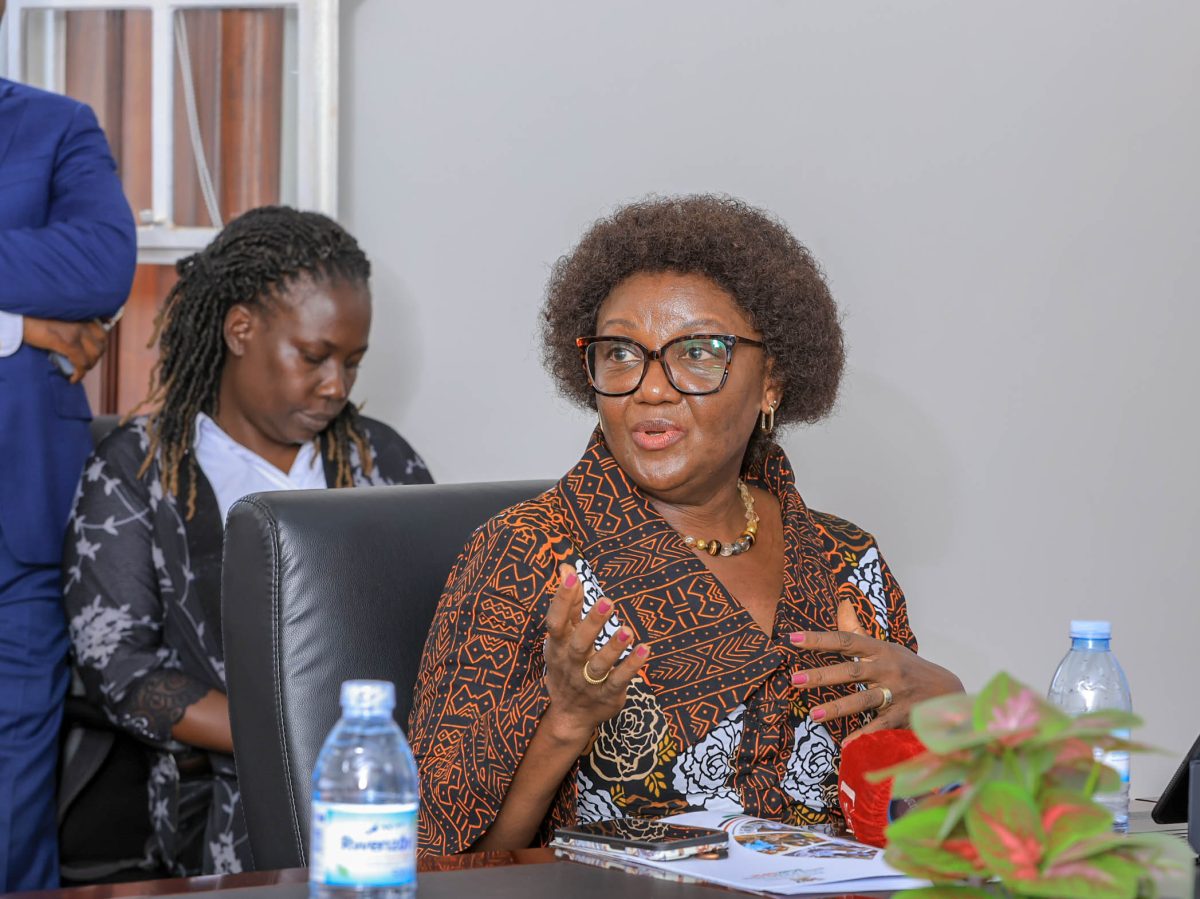
The MoU extends collaboration beyond the School of Public Health. The Vice Chancellor noted productive partnerships across other departments, including the Department of Journalism and Communication and the College of Humanities and Social Sciences, emphasizing how diverse disciplines can contribute to evidence-based policy and community well-being.
Another important example is the Caring for the Caregiver (CFC) intervention led by the Makerere Institute of Teacher Education and Research (MITER) in the College of Education and External Studies (CEES). This was implemented in partnership with the Ministry of Health, UNICEF Uganda, and international partners. The evaluation examined caregiver emotional wellbeing, social support, and parenting stress in rural Uganda, contributing to the growing evidence base for nurturing care in resource-constrained settings.
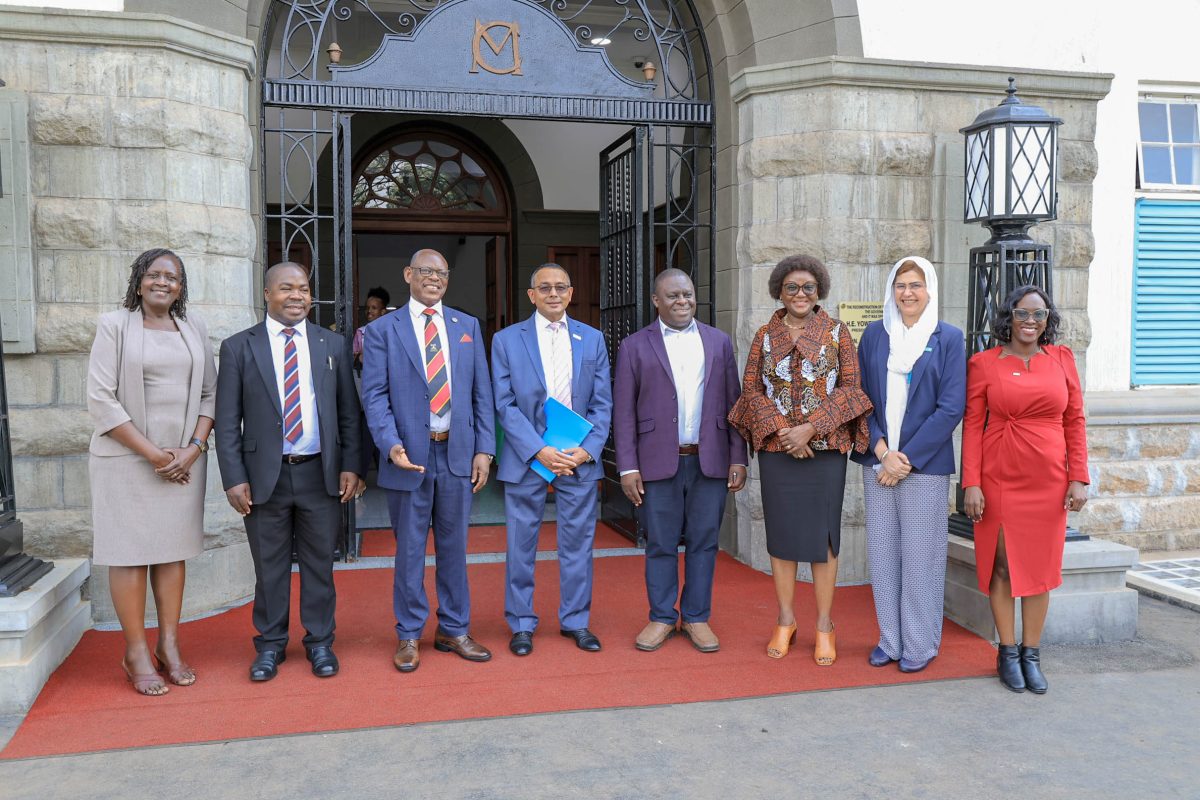
Also, the School of Statistics and Planning in the College of Business and Management Sciences (CoBAMS) has partnered with UNICEF to tackle urgent socio-economic and public health challenges. A key example is the Socio-economic Impact Assessment of the 2022 Ebola Virus Disease outbreak in Mubende and Kassanda districts, which examined household-level shocks, community coping strategies, and the wider disruption of livelihoods. The study’s findings have informed national policy dialogue and action planning, emphasizing that there must be stronger preparedness measures.
According to the Vice Chancellor, the university’s broader engagement with UNICEF as a driver of research, innovation, and community outreach benefits children and families throughout Uganda.
For Dr. Nandy the partnership will support student involvement in real-world operational and programmatic work, creating pipelines for young scholars to contribute to child welfare initiatives.
Both parties expressed a shared vision of translating research findings into concrete actions that strengthen child protection and opportunities for learning and development. The collaboration is expected to yield new efforts for effective interventions, sharpen the policy dialogue, and catalyze scalable innovations that improve the daily lives of Uganda’s children.
